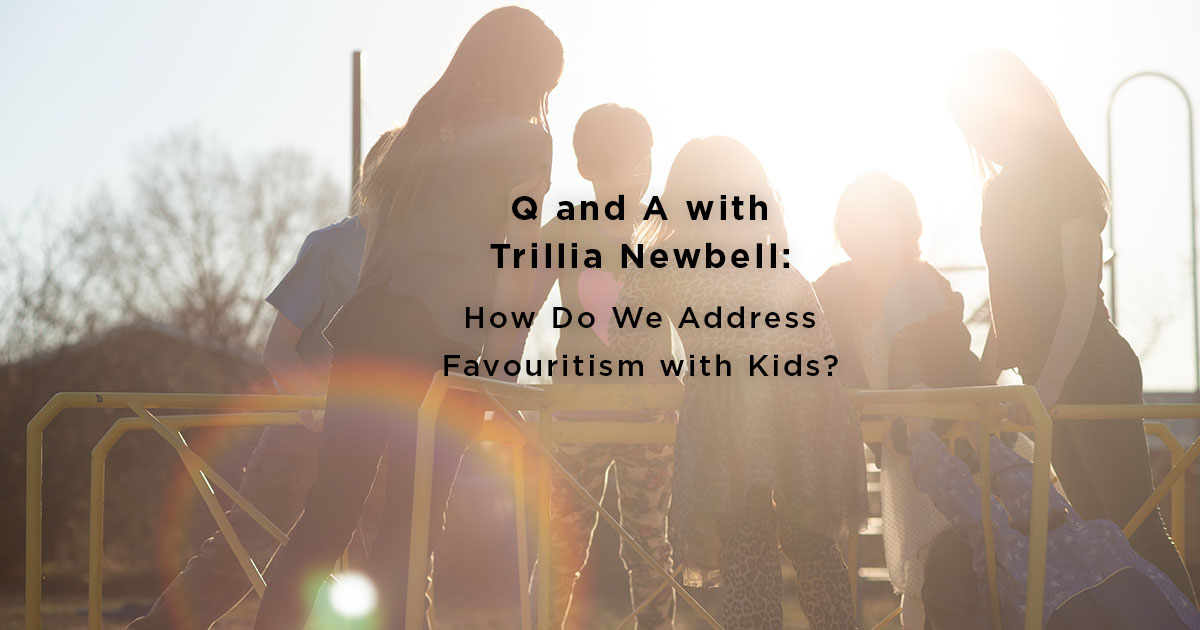
One boy was left on the carpet. Everyone else had been picked for a team game by a friend, but he was left all alone. He didn’t lift his eyes when the kid’s ministry worker assigned him to a team and reminded the other kids to “be kind”. My heart hurt for the little guy.
While I remember that instance vividly, there have been many others. Favouritism is rampant, even among kids. Even in the church. That’s why I’m grateful for the new kid’s book The Big Wide Welcome because it shares Biblical wisdom about favouritism in a kid-friendly manner, reaching little hearts with the good news of Jesus’ love for them and his call to love others.
Read on for insight from author Trillia Newbell about addressing favouritism among kids. She also wrote the popular kid’s book God’s Very Good Idea, which celebrates God's design for diversity.
There are times when we unintentionally exclude others—we aren’t aware that we aren’t acknowledging others around us. But there are other times when our selfishness keeps us from pursuing others. We are content with the friendships we have and therefore leave others out.
You and I can have favourite things, best friends, and people that we gravitate toward. But we should never have these things to the exclusion of others.
There are other times when our sinful preferences keep us from interacting with and including others. A sinful preference might be better described as the sin of partiality. Partiality is defined as an unfair bias in favour of one person compared to another. Partiality or favouritism can be based on the colour of ones skin, based on differences of socio-economics, based on physical ability, language, culture, or a number of other things.
Younger children (ages 3-6) tend to play favourites with people based on familiarity and attraction (what they enjoy or like). Children tend to question differences (“Why do they have that dot on their forehead? Why doesn’t he walk?”)
They may gravitate toward other kids that are like them and exclude others but it may not be until they are older that their sin becomes clearer and harmful. Kids will make fun of others and exclude each other from games. That’s why it’s important to help children know early that Jesus wants us to love all people. We should not show favourites with people. We can have best friends but we don’t want to exclude others.
The kind of favouritism that I’m referring to and that I draw from James 2 is sinful partiality. You and I can have favourite things, best friends, and people that we gravitate toward. But we should never have these things to the exclusion of others.
So often our friendships are about what others can do for us, but God turns everything on its head. He rebukes our pride and arrogance and invites us to love others as He loves us.
I’ve always loved James 2. James strongly rebuked the church members who were showing partiality. Although his focus was on socio-economic, the application is broad. He challenged them and then shared the better way: love.
How kind of God to help us understand His heart for others and how we ought to engage one another. It’s counter-cultural. So often our friendships are about what others can do for us, but God turns everything on its head. He rebukes our pride and arrogance and invites us to love others as He loves us. It’s a picture of God’s heart for all people. Such an encouraging text!
We can teach our kids things like: when a new person comes to school, invite them to play. When kids are playing together, we can help make sure to include everyone. We can also make sure that we teach kids to love others. We can make sure that they understand that God made everyone by sharing Biblical truth with them.
For example, my kid’s book God’s Very Good Idea helps kids understand how to view others. The Big Wide Welcome takes how we view others and helps kids grow in application of loving our neighbour. These books are both theological and help young hearts understand what God teaches in His Bible about others, but The Big Wide Welcome addresses a specific area that can go wrong and helps kids understand how they can grow.